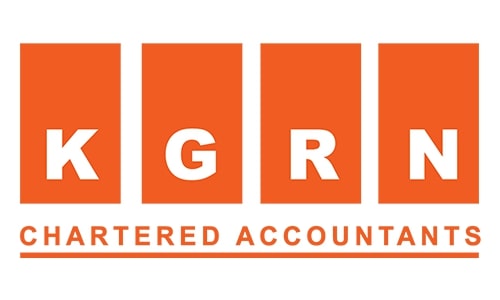The UAE Cabinet has come out with a new resolution in the form of Resolution No. 57 of the 2020 ESR Regulations Amendment. The latest updates according to this Amendment will replace the previous rules, and the document also provides guidance and clarity regarding the new amendments.
Since the Emirati government gives a lot of emphasis on ESR laws and compliance, all businesses need to have a good understanding of these laws. There are quite a few changes according to these Amended Regulations, and in this blog, we will take a look at them, and how KGRN can help you navigate through them.
The UAE government issued ESR recommendations in 2019 as part of Resolution 31 for the year. They also issued additional guidance in the form of Resolution 58 to clarify the laws. The government updated these laws again on the 10th and 19th of August 2020, via a circular on updated Regulations. As a result, these new laws supersede those enacted as a result of Resolutions 31 and 58 last year.
According to the administration, the new laws and revisions will broaden and clarify the regulations, making the system more sustainable and efficient. The Amendment Guidance further reiterates the purpose of these statutes. The Amendment emphasises that the laws are tailored towards geographically mobile firms. Such economic operations will now require appropriate substance in the areas where they operate.
For enquires call @ +971 45 570 204 / Email Us : [email protected]
Here’s a look at the significant changes brought in by the Regulations Amendment.
- Change regarding the definition of a licensee
- A requirement for compulsory re-notification via the MOF portal for the year 2019
- Transformation of the Federal Tax Authority into the National Assessing Authority which oversees ESR compliance and regulation
- Changes regarding exemption from ESR
- Changes in the definition of distribution and service centre business
For enquires call @ +971 45 570 204 / Email Us : [email protected]
The term Licensee will from now on only encapsulate unincorporated partnership firms and juridical persons that carry out a relevant activity and who are registered in the UAE, or Free Zones within the UAE. A juridical person is any corporate legal entity that has been incorporated within or outside the country and enjoys a separate legal status.
Furthermore, unincorporated partnerships are those that operate within the UAE but do not enjoy a separate legal status. Hence, the new amendments do not consider individuals, sole proprietorship entities, foundations and trusts to be Licensees. Instead, the focus now falls only on legally accepted corporate entities and unincorporated partnerships.
For enquires call @ +971 45 570 204 / Email Us : [email protected]
Branches of legal entities: Permanent or temporary establishments of any form that have a taxable presence and serve corporate tax purposes. Since these branches are considered as extensions of the parent company, they do not enjoy a separate legal status. As a result, they do not have to comply with the ESR rules.
Furthermore, inbound branches which are branches of firms incorporated outside the Emirati jurisdiction are exempt from ESR laws if the income they gain is taxed in another country. Meanwhile, outbound branches, which are branches of firms incorporated within the UAE which take up work outside the UAE, shall not have to report such income if they are taxed outside the country.
Connected Person: Entities that are a part of the same group as that of another Licensee or Exempted Licensee. A Group is essentially two or more organisations that are related via ownership or control. Such groups prepare consolidated reports and financial statements for evaluation.
Distribution and Service Center Business
Entities do not have to re-sell goods outside the country to be a Distributor as local sales, third port shipments and third party exports all fall under the same category. Also, they do not need to provide services to foreign persons as services provided to such individuals within the UAE will fall under the same scope.
For enquires call @ +971 45 570 204 / Email Us : [email protected]
Another significant change brought in by the Amended Regulations is the exemption of a few entities from fulfilling the ESR economic substance test. These include the following entities;
- Investment Funds excluding self-managed funds which may require evaluation
- Tax residents outside of the UAE
- Organisations owned wholly by a UAE resident, which includes both citizens and those who have a residency permit. However, these entities must not be a part of the MNE group, and their activities must fall outside of the UAE.
- Branches of foreign businesses that are subject to tax outside the UAE.
To claim such exemptions, the entities must submit supporting documents and a notification form to the regulatory authority. If these documents do not reach the authority, they will lose their exemption and will have to comply with the Amended regulations and follow the ESR guidelines.
Government-owned entities, whether they are directly or indirectly owned, are no longer a part of the exemption list. Entities which pay taxes in foreign countries will not become a tax resident of that area solely on the basis of payment of tax.
Furthermore, the Economic Substance Test will now fall under the purview of the FTA, which takes the name National Assessing Authority. Their new powers include being able to impose penalties and decide on appeals. The firms also have to file annual notifications at least six months before the end of the financial year.
For enquires call @ +971 45 570 204 / Email Us : [email protected]
| Offence | Penalty |
| Does not submit the notification or relevant authority | AED 20,000 |
| Does not submit the ESR reportDoes not meet the Substance Test annually | AED 50,000And AED 4,00,000 for repeatoffence |
| Submit inaccurate information on purpose | AED 50,000 |
Now that you know about the Regulations Amendment, why they are important, and the penalties associated with the ESR, come to us at KGRN for expert guidance. Our team of expert lawyers and chartered accountants will help you understand the new laws. We will also analyse your entire structure to ensure you comply with the new laws. Furthermore, our team will also assist you with all the documentation required to maintain compliance. So partner with us, at KGRN and ensure you stay on the right side of the laws at all times!
Tag: esr filing requirements, esr filing abu dhabi, esr filing company dubai, esr filing company in uae, esr notification filing deadline, uae esr filing, esr submission guidelines, esr filing in dubai, esr filing company in dubai, esr return filing uae






